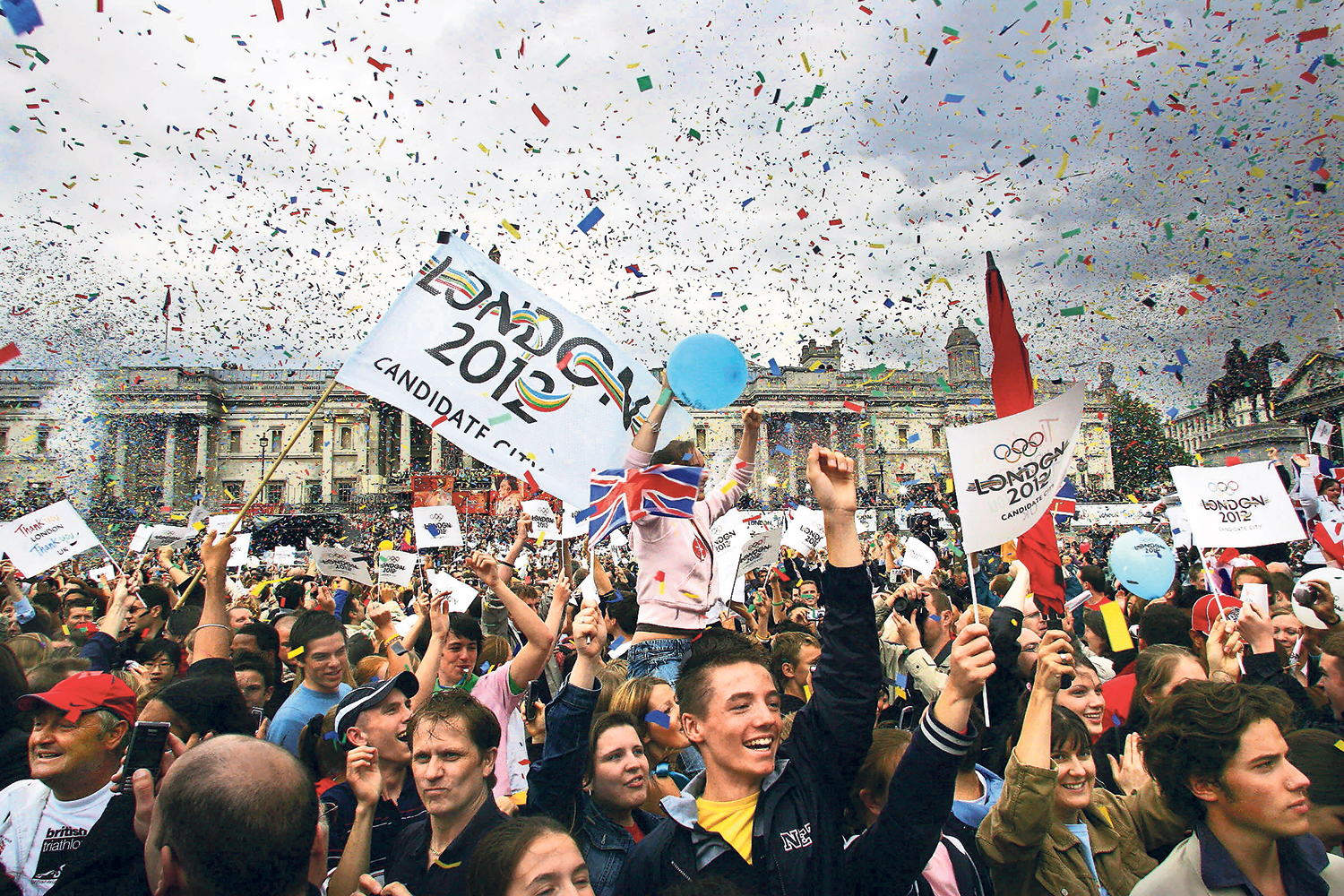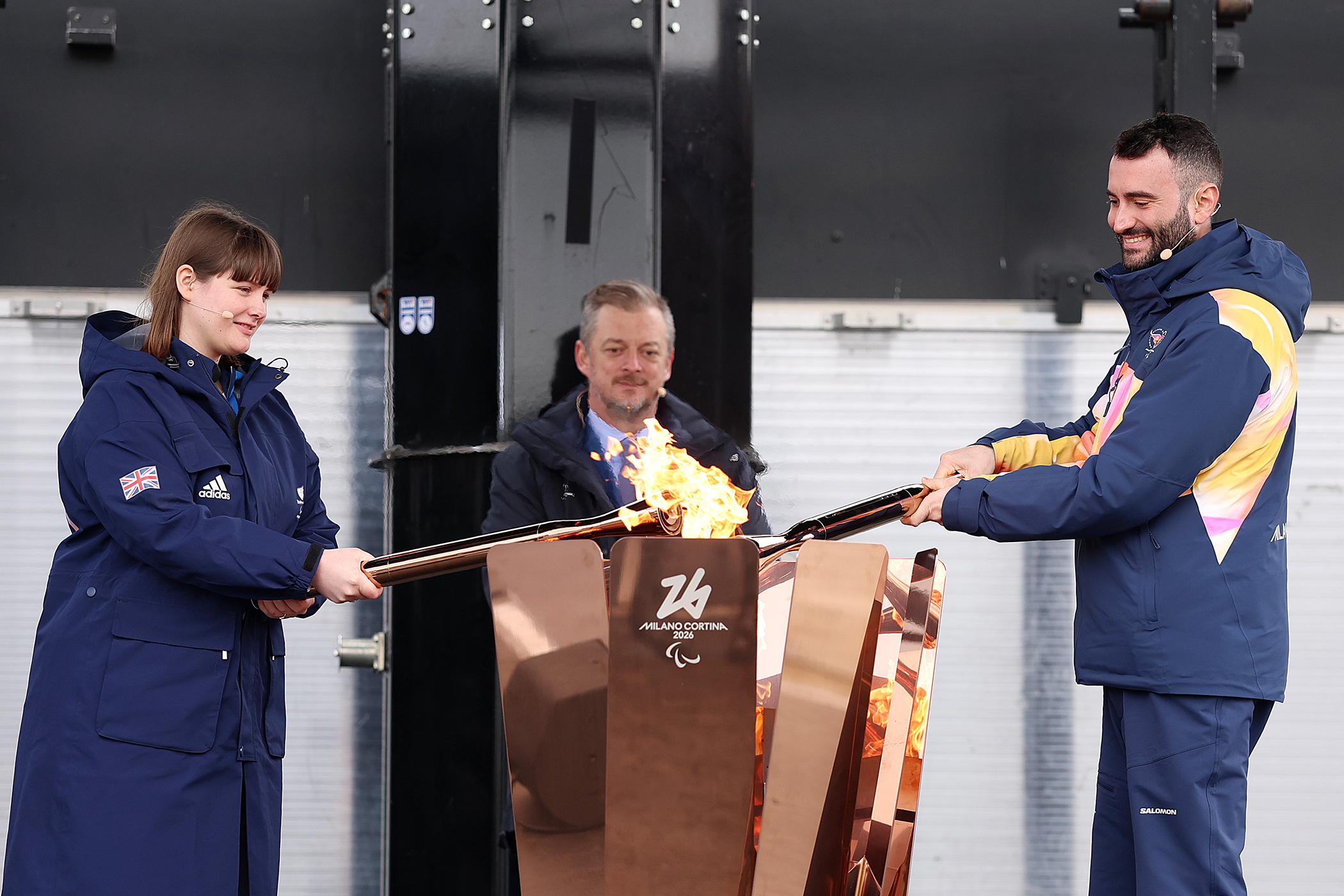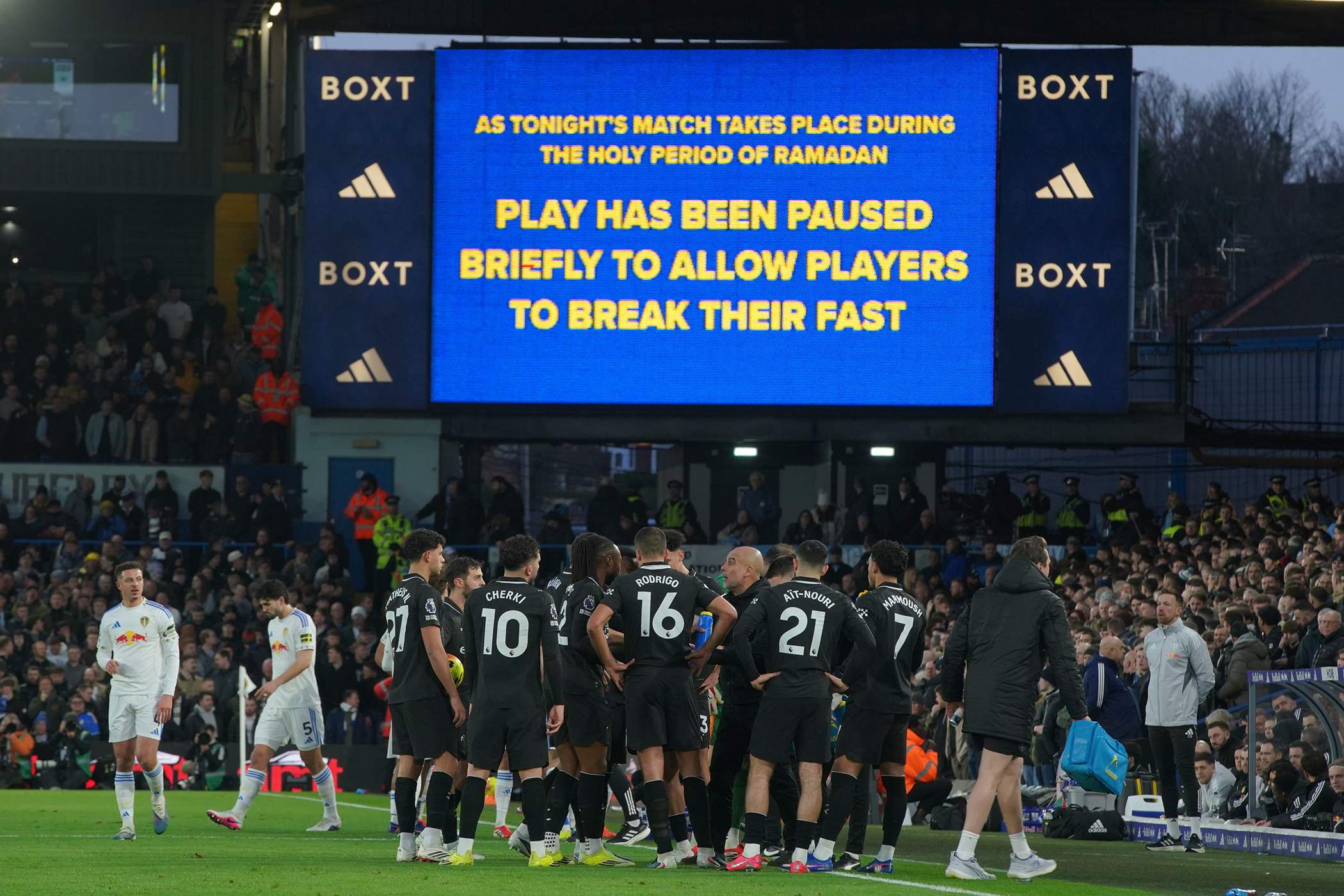Chatting to Sebastian Coe about today’s 20th anniversary of London being awarded the 2012 Olympic and Paralympics, we are approached by a stranger.
“Sorry to interrupt, I just wanted to shake hands and say thank you for the Olympics,” the man tells Lord Coe. “It’s been a tremendous inspiration to lots of people I know.” A smile spreads across Coe’s lips. “Thank you, that’s really kind of you,” he replies.
It is 13 years since the Games closed but Coe is still regularly stopped by people who want to express their gratitude to him for bringing an event to London that is remembered fondly as a high point in Britain’s recent history. The announcement on July 6, 2005, that London had been awarded the Olympics after beating bitter rivals Paris by four votes was met with disbelief in Singapore by a British delegation headed by Coe and including a list of star names such as David Beckham and with jubilation and excitement by crowds watching on the big screen in Trafalgar Square.
When Coe had taken over as chair of the bid a little more than a year before the final vote, some insiders were concerned that London 2012 was so far behind Paris it should be withdrawn. The double Olympic gold medallist replacing American businesswoman Barbara Cassani reinvigorated the project.
‘I couldn’t see in my lifetime a better vehicle to do everything I believed sport could achieve’
‘I couldn’t see in my lifetime a better vehicle to do everything I believed sport could achieve’
Sebastian Coe
Coe saw the potential of the mega-event better than anyone. “Apart from not wanting London to be embarrassed, the other overwhelming motivation was I also knew that it would be a platform to do things that you would not be able to replicate,” he says.
“The regeneration of East London would never have happened because there would always have been a reason why you didn’t spend the money. So, I couldn’t see in my lifetime a better vehicle to do everything that I believed sport could achieve.”
It was only in the last few weeks of the campaign that London began to gain ground on Paris thanks to its strong focus on legacy and regeneration and a compelling vision for youth engagement. Just like Coe used to when he was in his prime as a runner, London passed the French capital down the home straight thanks to the impetus provided by Tony Blair.
By 2005, the Prime Minister’s popularity may have begun to dim at home but abroad he was still a rock star. He flew to Singapore as a pivotal part of the London 2012 bid team but had to return late the day before the vote because Britain was hosting the G8 Summit at Gleneagles. Blair took on the mammoth task of trying to persuade as many of the 100-plus International Olympic Committee members as he could to vote for London before departing.
“That final day he went through 34 15-minute one-on-one meetings, with only me in the room,” says Coe. “If anybody was put on the planet to do that it was Tony Blair. And there were no great briefing documents, he would just look at me and he would want me, in 30 seconds, to explain who he was now meeting.
“He was brilliant, and he very nearly missed his flight to the G8. He was being chased by his officials, ‘You’re going to miss this flight, you’re going to miss this flight.’ And he only just made it.”
Newsletters
Choose the newsletters you want to receive
View more
For information about how The Observer protects your data, read our Privacy Policy
Operating in tandem with Blair was his wife, Cherie Booth. She memorably rounded on the French President, Jacques Chirac, at an official reception in Singapore over comments he had made about Britain’s food. Coe claimed the dressing-down so embarrassed Chirac he left the reception early and missed a crucial opportunity to lobby on behalf of Paris.
Still, the outcome remained on a knife-edge. “I remember walking into the hall for the result and there was a call from the Prime Minister,” says Coe. “How’s it gone?,’ he asked. And I went, ‘We’re going in now,’ and he went, ‘I know, but what’s the result?’
“I said, ‘I really can’t tell you.’ He said, ‘But you must know,’ I went, ‘Nobody knows.’ And I suddenly realised, he’s usually got exit polls and number crunchers who are telling him that he’s held Southend. So, by 10 o’clock the BBC is saying, ‘We can now announce that it’s a Labour landslide.’ I said, ‘There are no exit polls here, I genuinely don’t know’ and added, ‘If I go on talking to you they’re going to lock me out because they’re going to close the room, I won’t even be in there.’”
It seemed to take an eternity for IOC president, Jacques Rogge, to open the heavily sealed envelope before pulling out the card with “London” printed on it. “I remember [deputy chairman] Keith Mills saying to me, ‘All the photographers are sitting in front of Paris’,” says Coe. “I know when I’ve got across the line and you’ve either been successful or you’ve been unsuccessful, your first thought, is never about, ‘Oh, fantastic, I’ve won.’ My first emotion is always, if I’ve won, ‘Thank God I haven’t let the backroom team, family and friends down’.”
Celebrations did not last long, though, as the next morning a series of bombings in London killed 52 people. London Mayor Ken Livingstone had to rush home and the rest of those involved in the stunning success arrived back in Britain with little fanfare. “It would have been nice to have come home with lovely photographs of the bid team coming down the steps of the plane and all that, but it was not possible,” says Coe.
Looking back on whether London 2012 delivered on its promise, Coe admits that the aim of getting more children involved in sport failed and that was because politicians did not capitalise on the opportunity. “We could have done more off the back of the Games,” he said.
But Coe is unequivocal that London 2012 delivered when it comes to the regeneration of a part of the city neglected for decades. “The Olympic Park is anything but a white elephant,” he said. “You’ve got thousands of people every year going through the park swimming and cycling. You have got the Copper Box Arena. You’ve got more housing and you’ve got the largest retail development in Europe and you’ve got three universities in one. It’s working. I still think it’s the strongest legacy of any Olympics.”
In a life of incredible highs, winning and hosting the Olympics is an unparalleled achievement for Coe. “I think for me it probably meant more to me than anything I’ve done,” he says. “We built a new city inside an old city in seven years. Is anything I’ve ever done going to match that? I doubt it.”
Photograph by Adrian Dennis/AFP/Getty Images


